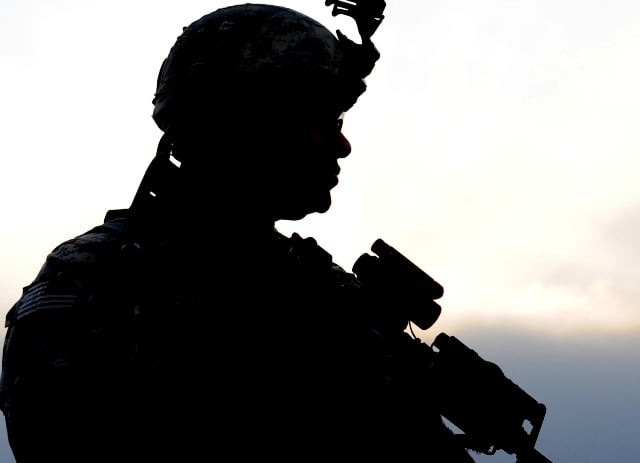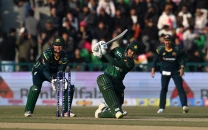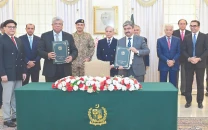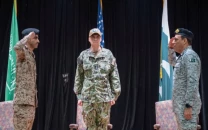US seeking to expand raids into Pakistan: NYT
Report says US military in Afghanistan pushing to expand ground raids - ISAF denies report.

Amid growing US frustration with Pakistan's efforts to remove militants from their strongholds, officials are proposing to escalate military activities in the country, the Times said on its website.
This report has been refuted by ISAF Deputy Chief of Staff for Communication Gregory Smith, who said that there is absolutely no truth in any suggestion that ground operations are being planned in Pakistan. He added that ISAF, US forces and their Afghan partners have developed a strong working relationship with the Pakistani military.
The admiral also said that contacts have been developed to address shared security issues. He also asserted that this coordination recognises the sovereignty of Afghanistan and Pakistan to pursue insurgents operating in their respective border areas.
Background
US covert operations and unmanned drone strikes in Pakistan have provoked angry reactions from the public and officials, although US cables recently released by WikiLeaks suggest that the political and military leadership quietly approved the activities.
The United States does not confirm drone attacks, but its military and the Central Intelligence Agency operating in Afghanistan are the only forces that deploy the aircraft in the region.
With Washington keen to start withdrawing American troops from Afghanistan next July, military and political leaders point to a renewed sense of urgency.
Military commanders told the Times that the Special Operations plan - which has not yet been approved - could help them secure much-needed intelligence if militants were captured, brought back across the border into Afghanistan and interrogated.
US officials said they were particularly keen to capture - rather than kill - militant leaders from the Taliban or the Haqqani network in order to obtain intelligence about future operations.
"We've never been as close as we are now to getting the go-ahead to go across," a senior US officer said.
In response to the article, Pakistan's ambassador to the United States Hussain Haqqani said the country was "capable of handling the militant threat" and that "no foreign forces are allowed or required to operate inside our sovereign territory".
The top US military officer, Admiral Mike Mullen, held talks in Pakistan and Afghanistan last week. Haqqani maintained that "nothing discussed during his trip indicates the likelihood of ill-advised escalation or unilateral action by Nato troops beyond their mandate in Afghanistan".
Officals say 2,421 Pakistani army and paramilitary soldiers have been killed and 7,195 wounded in fighting with militants from 2002 until April this year.
A senior official from President Barack Obama's administration also told the newspaper he did not favour cross-border operations, admitting they have been mostly "counterproductive" unless they targeted top al Qaeda leaders. Officials worry that the political fallout in Pakistan over the operations could counter any US tactical gains.
CIA-backed Afghan militias, previously believed to only carry out intelligence-gathering operations, have also crossed the border into Pakistan's tribal belt during secret missions, including one in which a militia destroyed a militant weapons cache, officials told the Times.
An Afghan political leader said one of the raids by the Paktika Defense Force - one of six CIA-trained Afghan militias - was initiated to capture a Taliban commander in Pakistan. The mission was ultimately unsuccessful but militants opened fire on the Afghans.
Another CIA-backed force near the eastern Afghan province of Khost was recently deployed in the mountains along the Pakistan border, where it is due to try to intercept Taliban fighters during the winter, an American military officer told the Times, saying the militia has so far proven effective.



















COMMENTS
Comments are moderated and generally will be posted if they are on-topic and not abusive.
For more information, please see our Comments FAQ